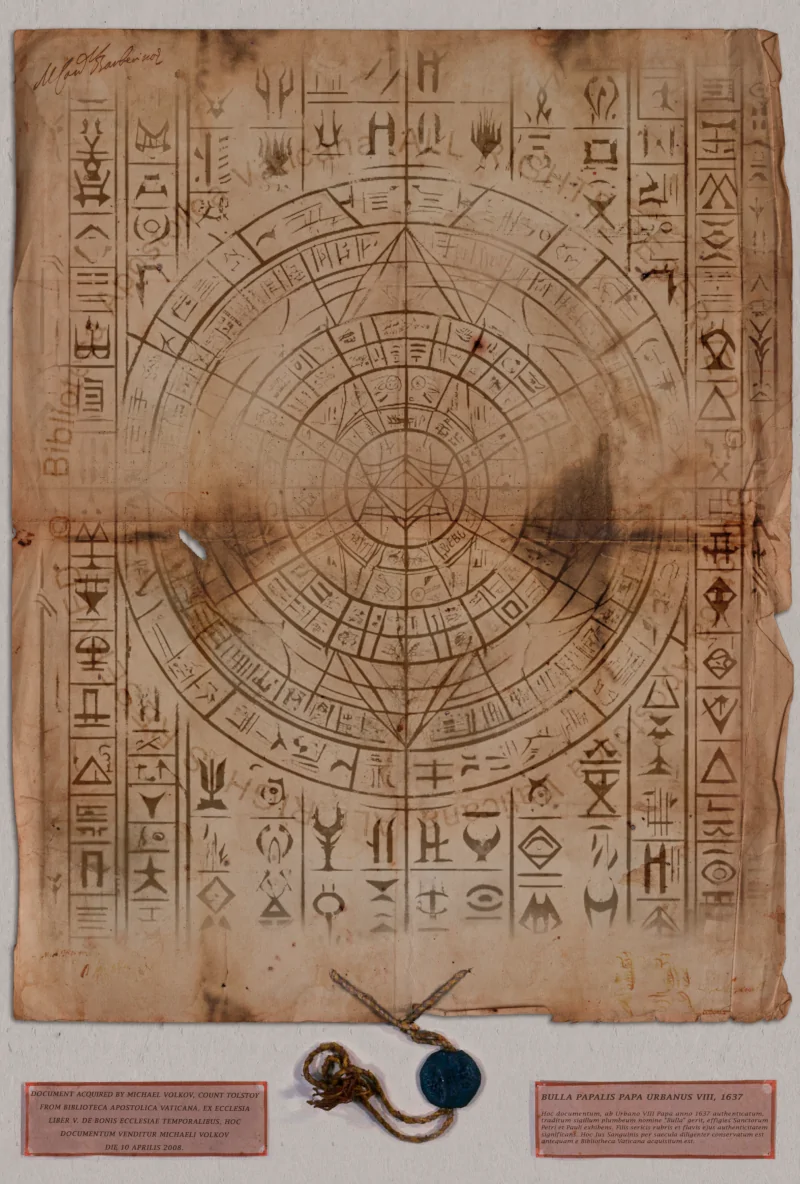The Raven's Enigma
When you gaze into an abyss...
"The abyss also gazes into you."
When you gaze into an abyss...
"The abyss also gazes into you."
I fell in love with Nastassia hook, line, and sinker. It was pathetic. I was like a blushing debutante falling for a dashing clarinet player in Harlem during the '30s, and I never knew what to do. It was my first time. She did not initiate any physical contact, but from time to time, I caught her observing me with those eyes when she thought I was unaware of her gaze. I was happy. And I was terrified.
What saved my sanity was, paradoxically, the fear of madness. I was afraid that I might end up losing my mind if I went deeper into the Vory story—like the members of the Japanese doomsday cult Aum Shinrikyo, who saw Armageddon not as a possibility but as an inevitability. Or like Friedrich Nietzsche, who famously said, "When you gaze long into an abyss, the abyss also gazes into you." Nietzsche, who sometimes called himself Dionysus and at other times The Crucified, eventually lost his mind.
Émile Ajar was weeping amid the rubble of the Turkish earthquake, and Wolfgang Amadeus Mozart was ghastly laughing in his unmarked grave, clinging to the copy of the Soulreaper's Blade that Salieri had thrust into his eyeball before devouring him alive. I spoke like that with Professor Smirnov—"Call me Filip," he said, but I never did—and Nastassia, and they loved it. In no time, we developed a vernacular of our own and spoke in shorthand in a way that not even the old Okhrana agents, the secret police of the Russian Empire, nor modern FSB agents, who handle internal security and counterintelligence for Vladimir V. Putin, could easily decipher.
However, someone less guileless than myself might have wondered how I was taken to the village of Stepanchikovo for a test and, after apparently passing it, immediately let into the treasure trove of such a sensitive topic. From an ignorant to an "expert" in a heartbeat? Luckily, I harbored no doubts in my heart as I entered Professor Smirnov's study, an eclectic domain that seemed more fitting for an alchemist or occultist than an academic.
The dim room was a maze of overflowing bookcases and haphazard piles of tomes, shrouding everything in a scholastic mustiness. In one corner, a towering construct of leather-bound volumes housed the complete works of Dostoyevsky, looming over a cluster of well-worn hardcovers analyzing the life and theories of Carl Jung across six immense volumes. A faded, baroque-framed poster advertised Picatrix: A Medieval Treatise on Astral Magic in an ornate calligraphic hand. Funnily enough, I had that book back in the States.
How that fit with Fyodor Dostoyevsky eluded me, but I recalled advice from a friend of mine who had studied music theory and violin at the Moscow State Conservatory P.I. Tchaikovsky for a decade—in a Russian home, never say anything that might be perceived as criticism—so I did not comment on the Picatrix poster or Israel Regardie's book I also spotted, The Golden Dawn: The Original Account of the Teachings, Rites, and Ceremonies of the Hermetic Order.
Books on Russian history, literature, and the mystical arts were scattered all over Professor Smirnov's study, intermingling titles like Alchemy & Cabala with crumbling folios of Slavic folktales and poetry by Symbolist writers. It was a realm where the arcane and academic blended seamlessly. I noticed Professor Smirnov taking out and hunching over one particular parchment. He glanced up, offering me the same lurid absinthe he drank, but I respectfully declined, opting instead for a heavy crystal tumbler of chilled Polar Bear vodka that beaded with condensation.
Sinking into a worn leather armchair, the scents of aged paper, rich leather, and herbs swirling around me, I couldn't help but feel I had entered a mystic's study across the veil of ages rather than the office of a contemporary scholar. Nastassia settled for a boiling hot black tea. Even that seemed incredibly charming to me. I had it worse than a teenager from Ferris Bueller's Day Off.
And then, Professor Smirnov, who never beat around the bush and, in his deep, nasal baritone—resonating like the reedy, woody sound of a bassoon—pointed to a triangular prima balalaika hanging on the wall and asked me if I knew it sounded like a mandolin married a banjo and they had a child, as Anna Katerina Nekrylova had once said. I did not know.
"Well," he laughed, "then you will surely be able to understand the text on this parchment," the very same he had hunched over a second ago but pushed aside so I could not have a good look at first Now I saw it in its full glory. It was an aged and weathered scroll, cracked and worn at the edges, covered in intricate symbols and markings that appeared to be an ancient form of writing or code. The symbols included specific hieroglyphic-like characters and arranged in rows and sections across the scroll, with the central circle suggesting they were part of some mystical incantation, ritual, or coded document from the past. It looked like an ancient artifact or relic from a lost civilization.

The Oath of Blood
Now I saw it in its full glory. It was an aged and weathered scroll, cracked and worn at the edges, covered in intricate symbols and markings that appeared to be an ancient form of writing or code.
Read more..."If anything in this life is certain, if history has taught us anything, it is that you can kill anyone."
— Don Michael Corleone